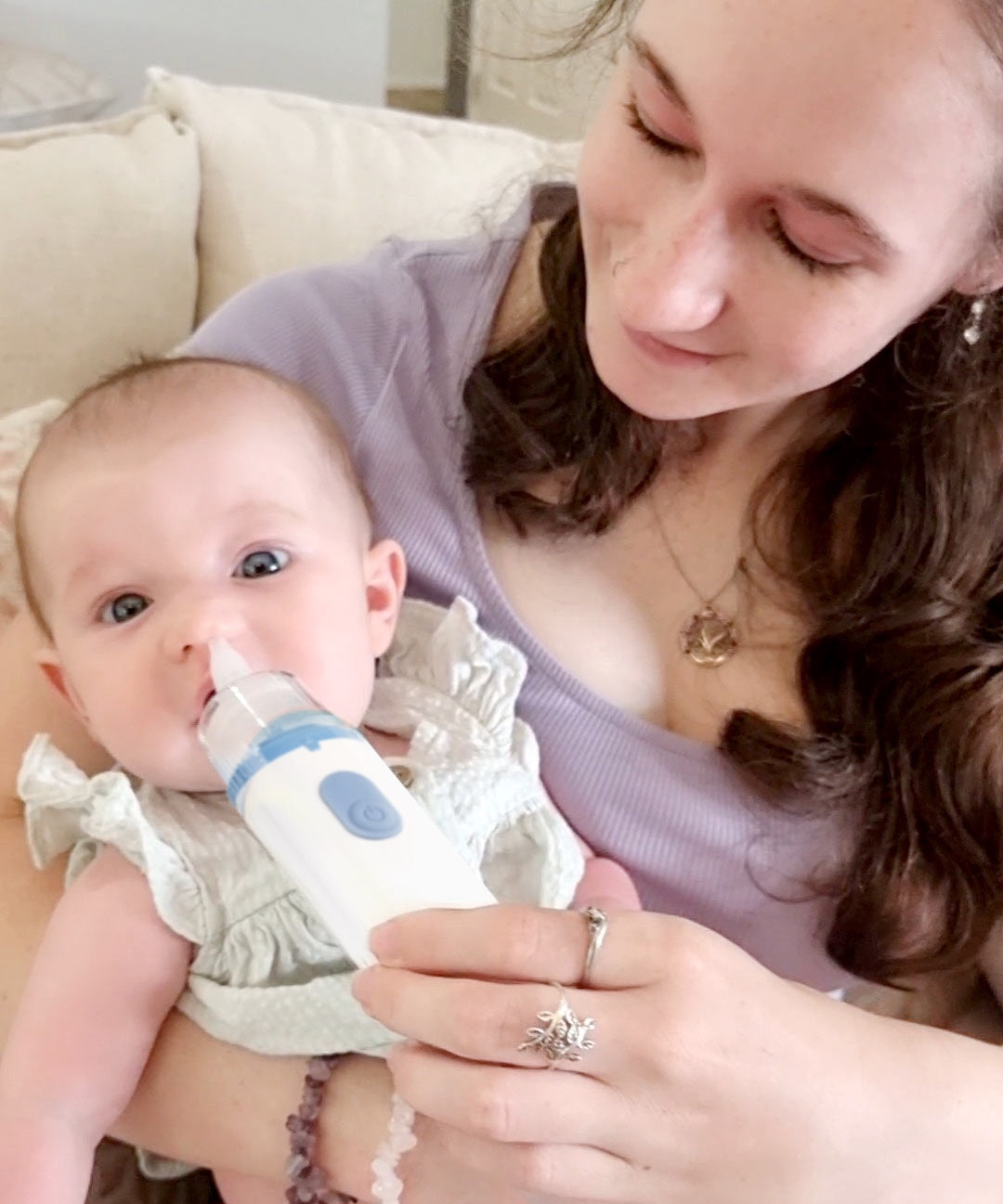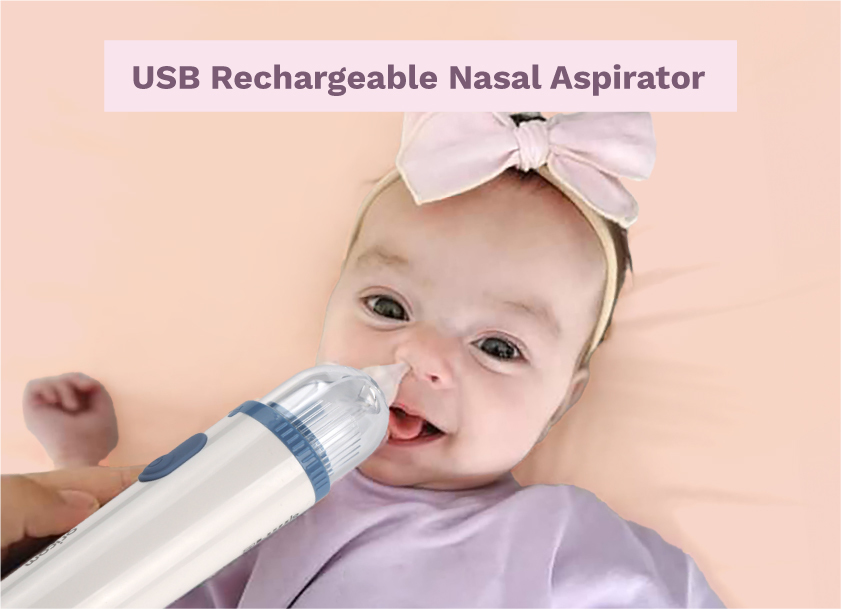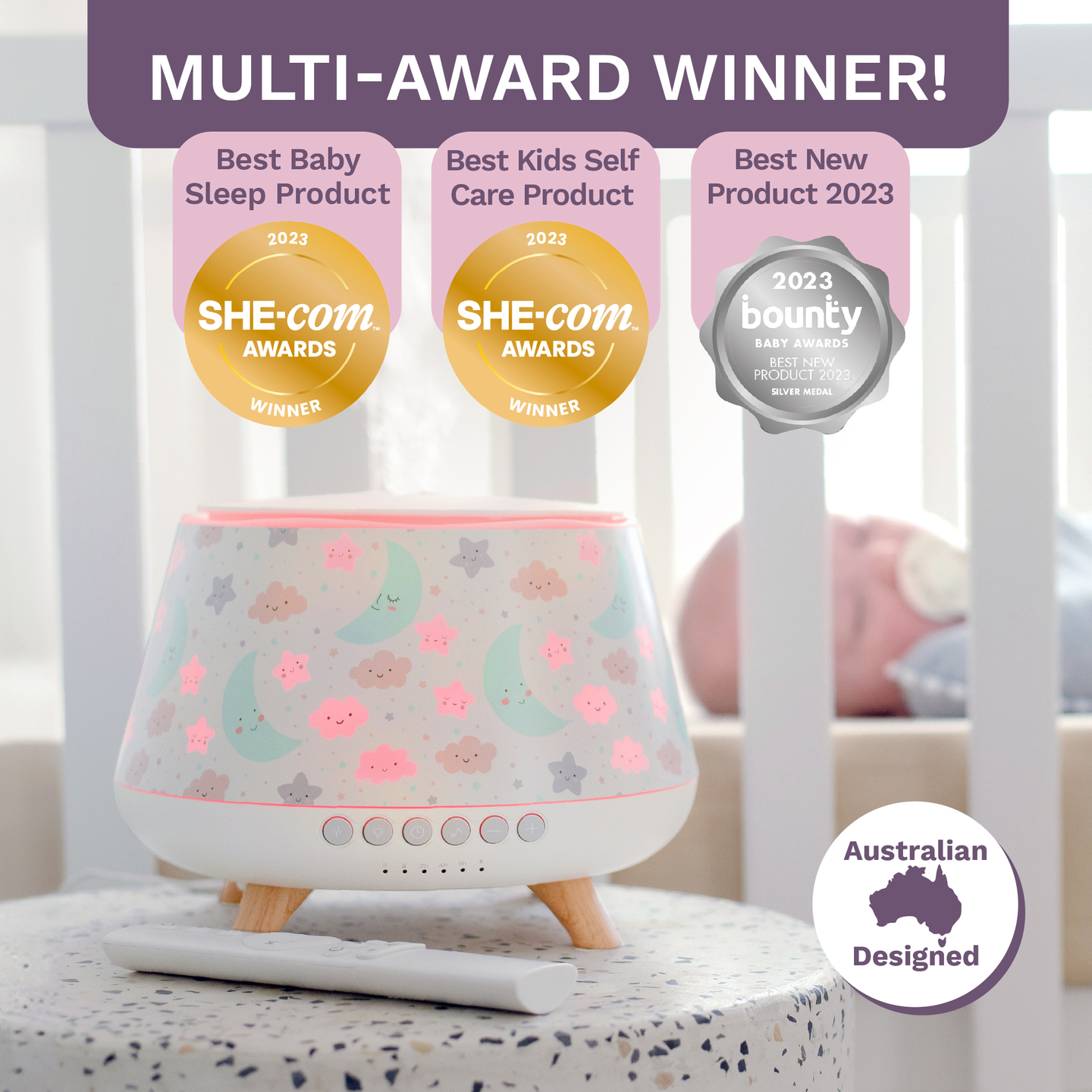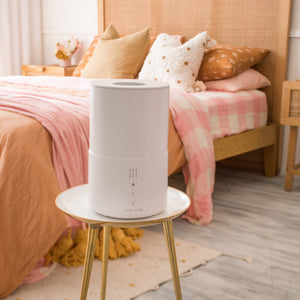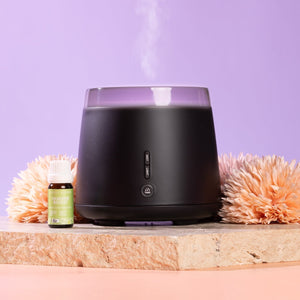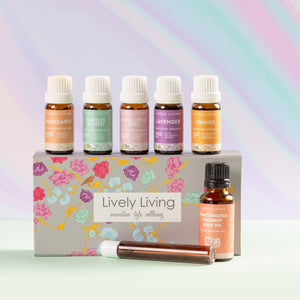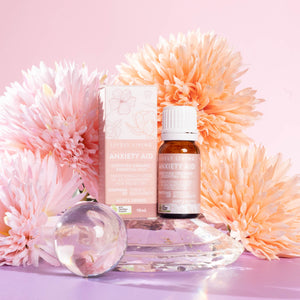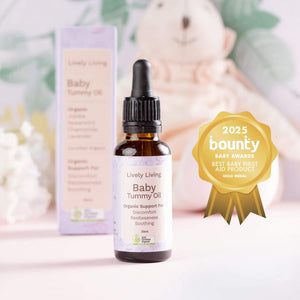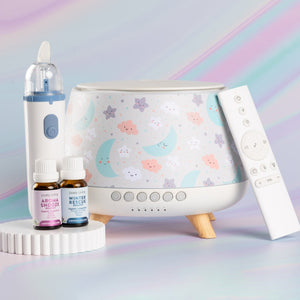Clearing Newborn Congested Nose: Practical Solutions
Ever watched your little one struggle with a newborn congested nose? Observing your little one striving to breathe in the midst of nasal congestion can be stressful. The tiny chest heaving, nostrils flaring as they try to suck in precious air...it can leave you feeling helpless and anxious.
Your initial thought could be to get them to the ER quickly. Before panic sets in, we can assure you - nasal congestion is common among newborns, and while it may look serious, often at times it’s not.
In this guide we are going to share practical advice on how to manage your baby's stuffy nose at home using saline drops and a USB Rechargeable Nasal Aspirator. You'll also learn when it’s necessary for medical intervention from health care providers.
Table Of Contents:
- Understanding Newborn Congested Nose
- Causes of Newborn Congested Nose
- Home Remedies for Newborn Congested Nose
- When to Seek Medical Help for Newborn Congested Nose
- Prevention of Newborn Congested Nose
- FAQs in Relation to Newborn Congested Nose
- Conclusion
Understanding Newborn Congested Nose
New parents often find themselves wondering why their little ones seem to have a newborn congested nose. It's important to remember that babies can only breathe through their noses, making congestion particularly challenging. So, what's the deal with these stuffy noses?
The Role of Excess Mucus in Congestion
Nasal congestion, commonly known as a 'stuffy nose', happens when excess mucus builds up in your baby's nasal passages. The body produces more mucus than it can handle, leading to blockages and discomfort.
Babies' small nostrils don't help either. Their tiny size makes them prone to getting clogged by even the smallest amount of mucus or debris. Therefore, it is evident that newborns may experience congestion due to their inability to clear out excess buildup from the nose. newborns often experience congestion because they are still adapting and learning how to clear out this excess buildup from their baby's nose.
In fact, statistics show that stuffy noses and sneezing are quite common among newborns. But fret not - while uncomfortable for your child, it is usually nothing serious.
Causes of Newborn Congested Nose
Babies often sound congested, but why is that? The primary cause can be a common cold or other viruses like the respiratory syncytial virus. Unlike adults, newborns are nose breathers and have small nasal passages, making them more susceptible to congestion.
Impact of Environmental Factors on Nasal Congestion
Dry air can also lead to a baby's stuffy nose. It dries out their delicate nasal tissues leading to discomfort and blockage. Besides dry air, pollutants such as cigarette smoke play havoc with your baby's breathing too.
Airborne irritants provoke an increase in mucus production within the tiny confines of your little one’s nose causing it to get blocked easily. (Read More)
In fact, stats reveal that baby chest congestion is not uncommon, and different factors including environmental ones could trigger it. (Learn more here)
To help you better understand these causes, think about how uncomfortable we feel when our noses are clogged up – now imagine this for someone who has just entered the world.
Home Remedies for Newborn Congested Nose
A congested nose can make your newborn uncomfortable and feeding difficult. But, don't worry. You've got this. Here are some simple home remedies to help clear that stuffy little snout.
Using a Motorised USB Rechargeable Nasal Aspirator
A electric Nasal Aspirator is a parent's secret weapon against baby congestion. It works by gently sucking out the excess mucus from your baby's nasal passages. Lively Living offer the USB Rechargeable Nasal Aspirator
If you babys nose is dry from air conditioners, first put a few drops of saline into each nostril using saline nose drops. This will loosen up any hardened mucus in there making suctioning easier.
Next, sit your child in a upright position and gently place the nasal aspirator into their nostril, moving it gently to help suction the snot.
Clean after every use with warm soapy water because cleanliness is next to healthiness or something like that.
Nasal Aspirators, used properly, are an effective tool for relieving your child's discomfort due to congestion.
When to Seek Medical Help for Newborn Congested Nose
If your newborn's congestion persists or worsens, it may be time to seek medical assistance. While a stuffy nose is usually nothing serious, certain signs could indicate that your child's healthcare provider needs to step in.
Recognizing Serious Symptoms in Your Baby
Babies are tough cookies but their small size makes them vulnerable too. When should you call for professional help? Well, if baby coughs persistently or sneezes often, these might be indicators of something more than just a common cold. High fever can also accompany congestion - anything above 100.4°F (38°C) warrants immediate attention from a healthcare provider.
Trouble breathing is another red flag. Babies' nasal passages are tiny; even minor congestion can make feeding difficult and cause unusual sleepiness or decreased energy levels due to lack of proper oxygen intake.
The bottom line? Trust your gut. You know your baby best - don't hesitate to reach out if something feels off because it’s always better to be safe than sorry.
Prevention of Newborn Congested Nose
Are there any ways to help prevent this issue and maintain your baby's comfort.
How To Maintain A Healthy Environment For Your Baby
The Academy of Pediatrics recommends keeping the environment free from smoke and clean to reduce the chances of babies contracting respiratory syncytial virus (RSV). RSV is one common cause of nasal congestion in babies.
To further safeguard against baby congestion, it's crucial to regulate humidity levels inside your home. Dry air can exacerbate a stuffy nose while excessive moisture may promote mold growth which could irritate delicate nasal passages. Lively Livings range of humidifiers are the best choice in supporting a postitive sleeping environment for your little one. The Aroma-Snooze range has won many awards,
Regularly cleaning surfaces like toys or pacifiers that come into contact with the baby also helps limit exposure to germs causing colds and other illnesses leading to a congested nose.
Maintaining good personal hygiene, especially washing hands before handling the baby can significantly reduce their chances of catching an illness that leads to congestion. Prevention truly begins at home.
FAQs in Relation to Newborn Congested Nose
How do you treat a congested nose in a newborn?
You can use saline drops and a bulb syringe to clear the mucus. Make sure to handle your baby gently during this process.
Is it normal for newborns to be congested?
Yes, congestion is common among newborns because they only breathe through their noses. But, if symptoms persist or worsen, consult with healthcare providers.
When should I worry about my newborn's stuffy nose?
If your baby has trouble breathing, eats less than usual, is unusually sleepy or has high fever above 100.4°F (38°C), get medical help immediately.
Is it OK to let my newborn sleep with a stuffy nose?
Newborns sleeping with congestion isn't usually dangerous but could lead them struggling for comfort. Try clearing their noses before bedtimes and keep the environment moistened using humidifiers.
Conclusion
Managing a newborn congested nose can be challenging, but remember - it's often not as serious as it seems. By understanding the role of mucus and causes like dry air, you're already better equipped.
You've learned how to spot signs such as changes in feeding habits or persistent coughing that could indicate discomfort from congestion. Rather than relying on over-the-counter medications, seek out safer alternatives such as saline drops and bulb syringes. Instead, turn to safer alternatives like saline drops and bulb syringes.
Avoid panic by knowing when to seek help from healthcare providers. Practice prevention strategies including good air quality maintenance and breastfeeding where possible. Your love coupled with informed action will keep your baby comfortable through those stuffy days!









